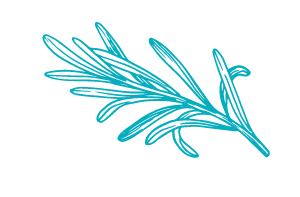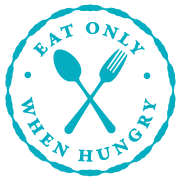
Intuitive Eating
I have the impression that we tend to think more and more in black and white in terms of health, body image and well-being. The way media presents us with trends contributes a lot to this development.
As we are also becoming increasingly impatient, we are turning more and more to offers that promise quick solutions and successes.
Everything has to be fast and quickly available.
The consistent orientation towards the outside world makes it almost impossible for us to reflect on our own needs. This does not only relate to our nutrition, but to all our needs. It ranges from the need to move, rest, develop, to closeness and exchange with others. We rarely question the status quo and far too often we accept external guidelines disguised as recommendations. The spectrum ranges from dietary recommendations to the frequency of sex to complete lifestyles that are considered desirable and socially accepted. We live in a world full of “recommendations” and have forgotten to listen to ourselves. The book Intuitive Eating by Evelyn Tribole and Elyse Resch was first published in 1995.
Meanwhile, it is in its third edition, and unfortunately the German title, deliberately wrongly translated in my opinion, is Intuitive Weight Loss.
This brings the focus back to the topic of weight loss. However, if you read the book carefully, you will find that intuitive eating means first and foremost listening to and trusting your own body again. It does not matter whether you want to lose weight or simply want to deal with your body in a healthier and more conscious way. There are also people who gain weight with intuitive eating when they were previously consistently below their genetically determined weight band. Of course, a title referring to weight loss sells much better.
So what is intuitive eating?
There are many definitions of it, but I would like to take this opportunity to tell you what it is not. We are born with everything we need to eat intuitively. Only the influence from outside makes us deviate from this naturally given instinct. For our ancestors, there were no regular meals. They ate when they had preyed upon food. There were fasting phases of different duration. This was pure stress, but our body could cope with it. Our body still has this ability today. Much of the chagrin of all dieters. However, we are no longer Stone Age people. In our affluent society, we almost always have access to food at any time. Only our brain does not know this and reacts according to the Stone Age pattern to artificial famine. It builds up reserves and holds them with all its might because it doesn’t know when the famine is over.
If you observe babies and toddlers, it quickly becomes clear why the influence from outside has such an impact. They do not know any prescribed meal times until we teach them. Our socialization and culture are the first influences that lead us away from intuitive eating. Suddenly we eat at certain times, whether we are hungry or not. This is the first time we are put into conflict with our body. A child signals hunger, but since it is not yet time to eat, it is admonished to wait until dinner. We learn – It is not my body that tells me when I am hungry, but my parents.
Intuitive eating is not based on socially prescribed meal times, but on our individual feelings of hunger and satiety.
I like to look for patterns or connections and therefore I have simply noted down the frequency of my food intake in the past 6 weeks. To my disappointment and surprise, there was no real pattern to be found. There were days when I only felt hungry twice and others when I ate up to six times because I was actually hungry. Even the amount of exercise did not have a recognizable effect. The amount and variety of food also fluctuated a lot.
Anyone who has ever been on a diet knows that thoughts about food are suddenly more present than ever before. The renunciation, the guidelines, and food banning make it difficult not to think about food and this is where the real dilemma begins. We enter an artificial famine and our brain is put on alert. The food supply is restricted, but we live in a world of thoughts about food all day long – recipes, bans, calorie and quantity measures, meal plans, meal-prep (food preparation), and much more. We focus all our attention on something that we actually want to avoid.
Pregnant women know the phenomenon of selective cognition very well. When they become pregnant, they suddenly notice pregnant women around them constantly. However, the number of pregnant women has not increased, their attention is simply focused on pregnant women. Car buyers are also subject to this perceptual error. The joy about the new car lets them perceive vehicles that are from the same manufacturer or even the same model more often.
If you keep this phenomenon in mind, it quickly becomes clear why the perception of food also changes with a diet. We want to eat less, but we think about it more and more and suddenly we constantly perceive food around us. The bakery, which we used to simply walk past, suddenly allures us with a seductive scent. Food that we didn’t really like before, but which is now forbidden suddenly has a magical attraction. This is how I developed a preference for bananas, although I didn’t like them that much before.
Intuitive eating does not follow any dietary plans or food bans.
During the research for this blog, I read a lot of testimonials from others. There are both very nice success stories, as well as reports of failed attempts, which are very similar to my first attempt. The article about my first failed attempt to become an intuitive eater can be found here. What I have unfortunately noticed in many reports of failed attempts are descriptions of eating behavior that points to eating disorders. Eating disorders are more present today than ever before. While anorexia and bulimia used to be the most popular manifestations, today other problems such as binge-eating disorder (regular overeating attacks), orthorexia (compulsive determination of nutritional values and vitamins) and excessive sport to compensate for too much food are becoming more and more common.
Under the hashtag #cheatday, you can find pictures of binge-eating, the absurdity of which is alarming. This cheat-day represents one day a week, when supposedly healthy living or dieting people enjoy all the treats, they deny themselves 6 days a week. This has nothing to do with pleasure or healthy eating. Anticipation and pleasure are a beautiful part of our lives. The special has a value and we should preserve this value. I love to cook or bake something special on the weekend. Therefore, you will find a category in my recipes called Sunday Delight.
Cheat days in the format of a feeding frenzy are pathological attempts to renounce the constant control over one’s own body at least for one day. They bear witness to the fact that by working against our body we awaken demons in ourselves that don’t know any boundaries. In my opinion, anyone who practices such crazy cheat days is well on their way to an eating disorder.
The experience reports of many failed intuitive eaters are unfortunately full of references to eating disorders. Either the number of calories is still being counted, on certain days an excessive amount of sweets or other unhealthy food is being consumed. Others ask the question why they do not lose weight despite doing a lot of sports. If you recognize such behavior in you, I ask you to take it seriously and to search for the causes. Ideally with professional support, because without this basic work, you will not succeed in eating intuitively.
Intuitive eating does not mean randomly stuffing food into yourself.
The first step in the right direction is to free yourself. Free from the diet mentality, free from rules and food bans but also free from compulsions like eating disorders. Intuitive eating means consciously feeling physical hunger and not confusing it with cravings or emotional hunger. For me, emotional hunger is one of the most common triggers for a ravenous appetite for certain foods. My passion for cappuccino is still closely linked to the positive memories of a love relationship. You can read about the story here.
Many people tend to comfort themselves or calm down with certain foods. These habits have their origin somewhere. To distinguish emotional hunger from real hunger, you have to face your emotional hunger. Physical hunger can be satisfied with any food that you would eat in general. Emotional hunger has a connection to certain foods. The problem is that you may think that you can satisfy this hunger with a certain food, but what has aroused your emotional hunger cannot really be satisfied with food. Search for the source of your emotional hunger. For example, if you think that your body needs a huge portion of ice cream right now, then do the following:
- Take some of the ice cream, sit down at a table, and enjoy each spoonful consciously. Feel the taste, the coolness, and creamy sweetness.
- Don’t let anything distract you from this pleasure – no television, no mobile phone, no music.
- Close your eyes and remember a nice experience you associate with eating ice cream.
- Make yourself aware of what was beautiful about this experience apart from the ice cream – maybe it was a day with friends, feeling the sun or a special place.
- Find out which positive feelings accompanied this day.
- Ask yourself what you could do to arouse these feelings now – go out in the sun, talk to your friends on, return to the place and if you can’t, look at the photos you might have taken.
- Be aware that the ice cream was only a part of this beautiful experience and direct your thoughts in another direction.
- If you still want to eat more of the ice cream, then take another portion but enjoy it just as consciously and without any guilt.






Intuitive eating does not require certain foods to satisfy your hunger.
We are more and more inclined to satisfy our emotional hunger with things that cannot satisfy it at all. In my opinion, consuming in any form is the most common way to deal with it. Those who do not satisfy this hunger with food often have other tendencies to deal with negative emotions like anger, rage, sadness, shame or disappointment as well as stress in general. Our focus on the outside makes it more and more difficult to feel the inside. When we are sad, we tend to suppress the feeling rather than give it the space it needs and consciously deal with it. Compensation through consumption promises a quicker relief than consciously dealing with it. After all, we have so little time and so much on our plate.
I have suppressed negative feelings for years, because if you want to be successful, you have to shine. At least that was my opinion. There were times when I couldn’t even remember the last time I had cried. Strength and optimism do not match with tears. Today I give all of my emotions much more space. I perceive both the negative and positive ones much more consciously. For this I use meditation, movement, mindfulness exercises and creative activities. I wish I could name the one moment when I started blocking the access to my feelings, but there is no such moment. We make so many different experiences in the course of our lives and some of them are more influential than others. Rather it has been a gradual process. It was important for me to realize that this process can be reversed. The freedom to give space to your emotions is therefore also the basis to become an intuitive eater. If you listen to your body, you will also listen to your feelings more consciously. Therefore, you can find tips and further articles on topics like meditation, mindfulness and movement under the category Wellbeing.
Intuitive eating does not suppress emotions but promotes mindfulness.
Physical hunger is not emotional hunger. You will find many definitions of intuitive eating on the net. However, when we want to evaluate if we behave according to this definition it is much easier to know what it is not. If you are not yet an intuitive eater, you will likely find yourself in one or more of the above-mentioned points and will therefore be able to recognize which behavioral patterns keep you from eating intuitively. You can work towards changing them in order to get on the right path. In any case, I recommend the book Intuitive Eating by Evelyn Tribole and Elyse Resch. Feel free to share your experiences with intuitive eating in the comment area, via email or in the Facebook group Eat Only When Hungry.


Expertise for Holistic Health
Are you looking for a personal coaching? I offer a comprehensive online coaching on healthy and intuitive eating. The focus is on step-by-step changes in order to eat healthy and more intuitively, so that you feel completely well. If you are interested in a coaching, please send an email with the subject Coaching to info@eatonlywhenhungry.com
You will receive an overview of the contents and costs from me and we will have a first conversation free of charge where we discuss your goals and needs.


